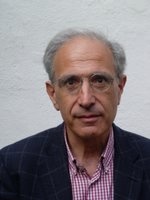Organ donations for peace
If you become an organ donor, you can help others live after you die. Here are two inspiring stories of cross-community organ donation in conflict areas, which also make a strong statement for peace.
Ahmed Khatib, a 12-year old boy was mistakenly shot by Israeli soldiers at the entrance of the Jenin refugee camp in November 2005. He had gone to buy himself a tie on the Muslim holiday Eid al-Fitr (marking the end of Ramadan) and was playing with a toy gun on. Israeli troops involved in a raid to arrest suspected terrorists came under fire. They mistook Ahmed for a militant and shot him. He was taken to a Haifa Hospital with his parents, where he later died.
The Israeli military immediately apologised for their mistake. The Khatibs agreed to donate their son’s organs to be transplanted to any Israeli awaiting an organ donation. They did not mind whether the patient was Jewish, Muslim or Christian. Ahmed Khatib’s heart now beats in the chest of a 12-year old Druze girl from northern Israel, who had waited 5 years for a transplant. His lungs were transplanted to a 14-year old. His kidneys benefited a 4-year old boy and a 5-year old girl. Sections of his liver helped save the lives of a 7-month old baby girl and a 58-year old woman.
We should applaud the Khatibs for their humanitarian gesture which has enabled their son in death to sustain the lives of others, whereas another family might have pledged another of their offspring to become a martyr as a suicide bomber.
The second story is of a 19-year old Scottish Jew studying in Israel called Yoni Jesner who was killed in a suicide bombing on a bus in Tel Aviv in September 2002.
Yoni was an A-grade student on his way to study medicine at University College London. He was also active in community work in the Glasgow Jewish community. He was the driving force behind the rejuvenation and expansion of Glasgow Bnei Akiva, his local youth group. He organised and ran cross-communal events as well as inter-youth movement activities. Yoni sent a Jewish Youth delegation to the Scottish Parliament. He was a Jewish Studies teacher and was in charge of running the children and youth services at his local synagogue. He was also the youngest volunteer at the Glasgow Jewish burial society.
Yoni’s family instructed doctors to donate their son’s kidney, and this was given to Yasmin Rimila, a 7-year-old Palestinian schoolgirl from Ramallah, who had suffered kidney failure. She had been waiting two years for a suitable donor so that doctors could treat the rare genetic disorder that had led to her kidney failure
Yoni’s eldest brother, Ari Jesner, said: "The family is very proud that Yoni was able to give life to others. The most important principle was that life was given to another human being. It’s unimportant what religion; what nationality. We are glad their daug
 hter was able to be saved. Life here is a bit of a lottery."
hter was able to be saved. Life here is a bit of a lottery."The Yoni Jesner Foundation was been set up in memory of Yoni. Through its projects the Foundation perpetuates Yoni's memory and continues the work that Yoni was involved with during his too-short life: www.yonijesner.org
Why not become an organ donor yourself? Type “Organ Donor” into Google, or in the UK go to: www.uktransplant.org.uk/ukt/how_to_become_a_donor/how_to_become_a_donor.jsp

